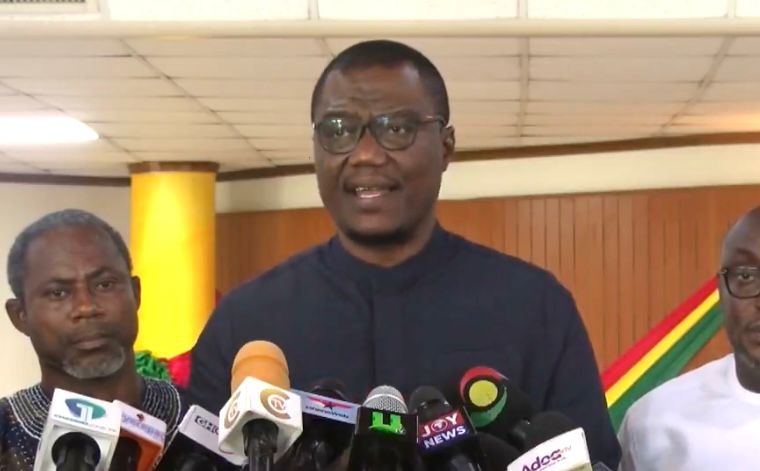The ongoing strike by the Ghana Registered Nurses and Midwives Association (GRNMA) has sparked a heated debate between the Minority in Parliament and the ruling government. The Minority accuses the John Mahama-led administration of adopting a coercive and politicized approach to the negotiations, urging a shift towards a more respectful and sincere engagement with the striking nurses. They emphasize the need for open dialogue and a willingness to address the nurses’ concerns, particularly in the upcoming mid-year budget review. The Minority’s appeal underscores the importance of prioritizing healthcare needs above political considerations, urging both parties to negotiate in good faith, keeping the welfare of Ghanaians at the forefront.
The GRNMA’s strike stems from a range of unmet demands outlined in their 2024 Collective Agreement. These demands include a 13th-month salary, fuel and medical allowances, rural incentive allowances, renewal of practicing licenses, and provision of uniforms. The nurses argue that these provisions are essential for their well-being and professional development, enabling them to deliver quality healthcare services effectively. The strike action reflects their frustration with the government’s perceived inaction and failure to address their concerns adequately.
The government, represented by Deputy Finance Minister Thomas Nyarko Ampem, acknowledges the nurses’ demands but cites significant financial constraints. Meeting the GRNMA’s full requests would require over GHS2 billion, a sum the government claims would destabilize the economy. This financial constraint places the government in a difficult position, balancing the nurses’ legitimate concerns with the broader economic implications of meeting their demands. This disagreement over financial feasibility underscores the complex nature of the negotiations.
The Minority, while acknowledging the government’s financial challenges, criticizes its handling of the situation. They argue that a more empathetic and respectful approach could de-escalate the tension and pave the way for a mutually agreeable solution. They urge the government to clearly communicate its financial limitations to the nurses while demonstrating a genuine commitment to addressing their concerns within the available resources. This approach, the Minority contends, would foster trust and facilitate a more constructive dialogue.
Amidst the back-and-forth between the government and the nurses, the Minority has also appealed to the GRNMA to prioritize the welfare of Ghanaians. They acknowledge the nurses’ right to strike but implore them to consider the impact of their action on the healthcare system and the patients who rely on their services. While advocating for the nurses’ concerns, the Minority also emphasizes the importance of finding a resolution that balances their needs with the broader public interest.
This complex situation requires a delicate balancing act. The nurses’ demands are legitimate, reflecting the challenges they face in delivering quality healthcare. The government’s financial constraints are also real, highlighting the need for prudent fiscal management. The Minority’s call for a more respectful and sincere dialogue offers a potential pathway to resolution. Ultimately, a successful outcome will require both parties to approach the negotiations with open minds, a willingness to compromise, and a shared commitment to ensuring the well-being of both healthcare professionals and the Ghanaian public. The ongoing dialogue holds the key to finding a sustainable solution that addresses both the nurses’ needs and the country’s economic realities.














